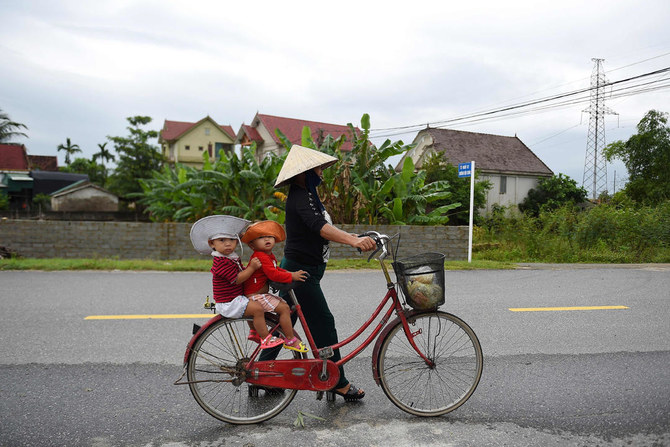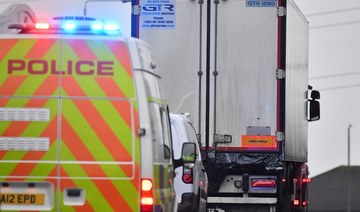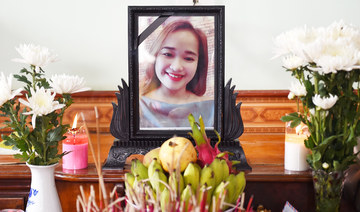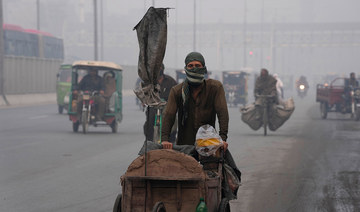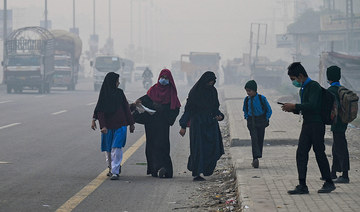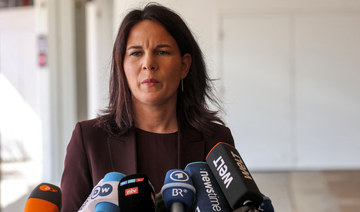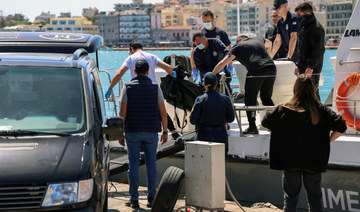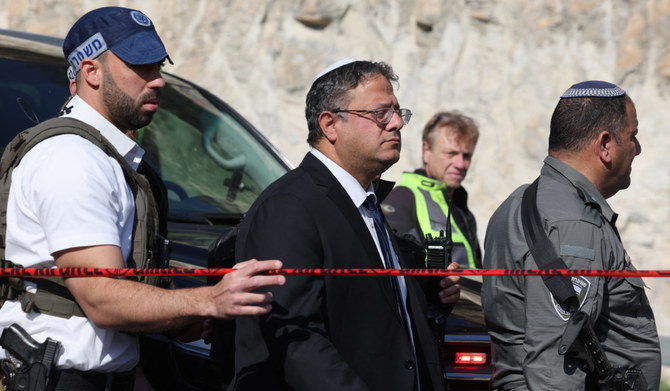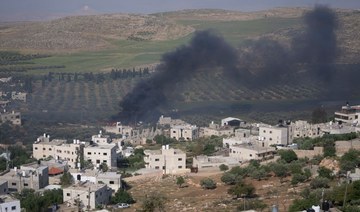NGHE AN, Vietnam: For up to $50,000, Vietnamese migrants can get the “VIP package” to Britain — flight, fake passport and even a lawyer — illegal, but billed as safer than cheaper overland routes by people smugglers who provide a menu of options for those trying to reach the UK.
Details of well-oiled smuggling routes spanning Vietnam to Europe have come under renewed scrutiny after 39 people were found dead in a truck in Britain.
Initially identified as Chinese, many are now believed to be Vietnamese after families came forward saying they feared their relatives were in the refrigerated trailer.
The nature of their journey depends on how much money their families can stump up.
Faster, comfortable and supposedly safer, the “VIP package” goes for as much as $50,000 — compared to around $15,000 for so-called “grass” overland journey, according to several experts AFP spoke to.
The VIP deal offers travel documents and flights to Europe, often to France, Germany or Spain, before the final passage into the UK.
“They put you in contact directly with a group in France that helps you at that end,” Chung Pham, who works with Locate International, a UK-based group that helps to find missing Vietnamese migrants in Britain told AFP.
Once in the UK, they are even provided with Vietnamese lawyers and translators in the event they are caught by police.
“It shows you how organized and systematized they are,” Pham said.
Britain has long been a prime destination for Vietnamese migrants thanks to well-entrenched criminal networks offering work — though often at lower salaries than promised.
The poor central provinces of Vietnam are riddled with people smugglers and brokers with underground contacts stretching across the world.
Families sell land or take on huge loans for the journeys, believing the investment will eventually pay itself back several times over.
False promises
The family of Hoang Van Tiep believes he was one of the 39 who died in the truck in Britain.
Smugglers promised them that $13,000 would secure his safe passage for the final leg of his journey from France into the country.
“I heard he would go on a VIP route, in a four-seater car. But they lied to us,” the 18-year-old’s mother Hoang Thi Ai told AFP from their home in Dien Thinh commune in central Nghe An province.
Tiep had lived in France for a year — the family paid $17,500 to get him there via Russia. The final instalLment was due on arrival in Britain.
But Tiep’s family never heard from him again.
They didn’t pay for the fatal truck journey — the smuggler has since disappeared — but his family still owe the bank $4,300.
“If I knew he was going to get on that lorry, I would have never let him go,” his stricken mother said.
Despite the promises, VIP packages will only get migrants as far as France or Belgium, common entry points into the UK.
Regardless of their journeys from Vietnam, migrants have few choices beyond hiding in containers to cross the English channel.
The people found in the truck last week were likely a mix of VIP and regular passengers, said Pham, based on information she received about the fees they paid.
'Irresistible offers'
For those without the cash, or credit access to secure VIP trips, journeys are often longer — and riskier.
“With the ‘peasant’ route you will travel all the way either on foot or in a lorry through the forest and it will take you months,” Pham said.
Vietnamese smugglers call these low-fare options “grass” packages, which often start in Russia or China.
Making their way westward, they are often forced to work to pay for the next stage of the trip, and face being caught by police or border agents.
They work as cooks, factory workers or market vendors. Some, including minors, are forced into sex work, according to a report by Anti-Slavery International, ECPAT UK and Pacific Links Foundation.
Many migrants are duped by smugglers into believing the journey ahead will be cushy if they pay enough.
“These people take big risks,” said a Vietnamese man who worked with cannabis farmers in the UK before recently returning.
“They can’t check the promises of traffickers, they just believe them,” he told AFP, requesting anonymity.
For many, the shot at a new life is irresistible.
That’s what drove Nguyen Van Hung overseas in 2018, paying smugglers $17,000 for a new passport and a flight to Russia.
The family secured a loan from the state-run credit fund to help him leave, telling the bank they planned to start a peanut-growing business.
From there he made his way to France — his family doesn’t know how — and called a few weeks ago to ask his mum to get some more money together for the final leg of the trip.
“We haven’t heard from him since,” his mother Nguyen Van Hung told AFP.



